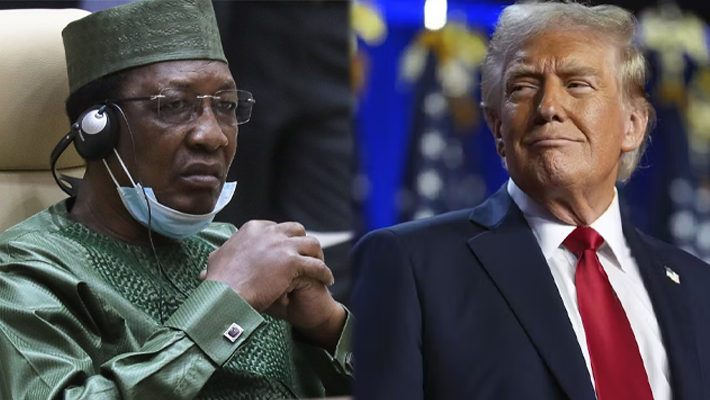N’DJAMENA, Chad — Chad on Thursday announced it will suspend the issuance of visas to U.S. citizens, following its inclusion in a U.S. travel ban that targets nationals from 12 countries. The move, confirmed by President Idriss Deby in a Facebook post, marks a diplomatic escalation in response to the administration of President Donald Trump.

“I have instructed the government to act in accordance with the principles of reciprocity and suspend the issuance of visas to U.S. citizens,” Deby said. The Chadian leader framed the response as a matter of national dignity, stating, “Chad has no planes to offer, no billions of dollars to give, but Chad has its dignity and pride,” in what appeared to be a pointed reference to Qatar’s recent $400 million jet gift to President Trump.
Chad is among seven African nations named in the expanded U.S. travel restrictions announced earlier this week, which apply heightened scrutiny and visa limitations on citizens from a dozen predominantly African and Middle Eastern countries. The decision sparked criticism across several capitals and has been viewed in some quarters as a setback to U.S.-Africa diplomatic relations.
The Chadian government did not specify whether the visa suspension would apply to all categories of travel, including diplomatic, business, and tourism visas, or whether exceptions would be made.
The Trump administration has defended its expanded travel restrictions as necessary for national security, citing concerns over information-sharing protocols and vetting processes in affected countries. However, critics, including human rights organizations and foreign governments, have called the move discriminatory and warned it could further isolate the United States diplomatically.
The travel restrictions have drawn protests and calls for reciprocity in several African capitals, with Chad now taking the lead in publicly implementing a retaliatory policy. It is unclear whether other nations included in the U.S. ban will follow suit.
Chad, a landlocked country in Central Africa, has been a key U.S. security partner in the Sahel region. It has participated in regional counterterrorism initiatives and hosted American military personnel in past joint operations. The diplomatic fallout could complicate future collaboration between the two countries, particularly on counterterror and humanitarian efforts.



